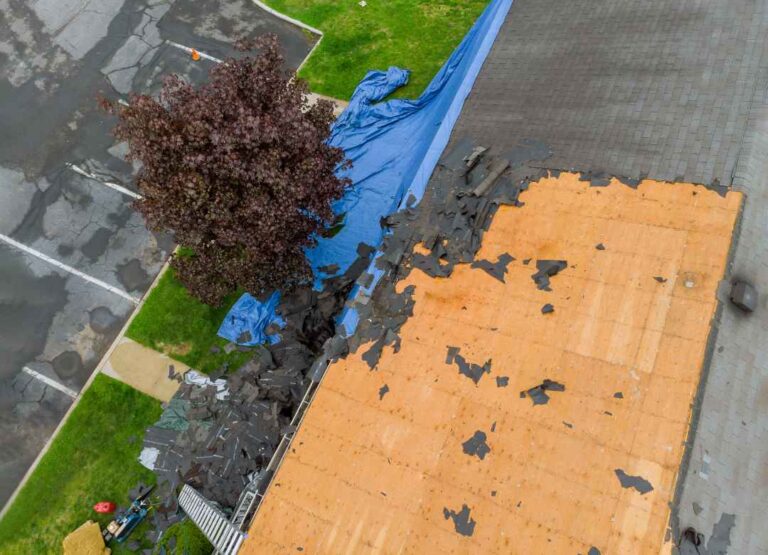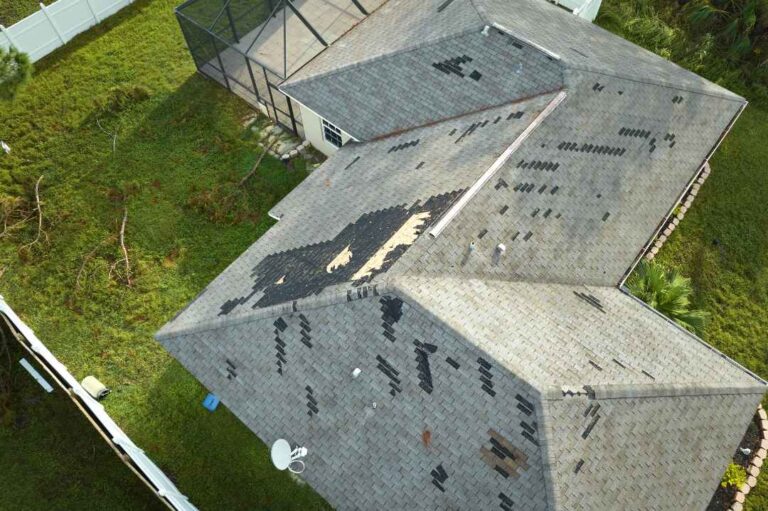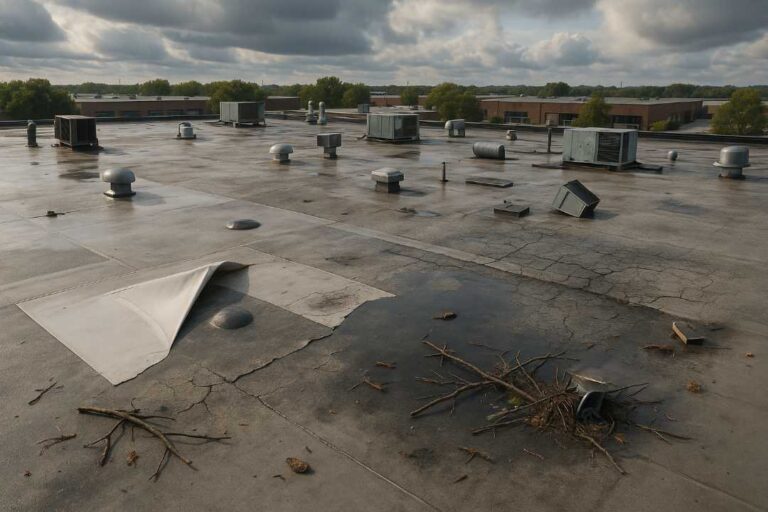Fortifying Your Chicago Home Against Nature’s Fury with these roofing materials
Living in Chicagoland means experiencing the full spectrum of Midwest weather. From scorching summer heat and high humidity to powerful spring thunderstorms with damaging hail and strong winds, and then the bitter cold of winter often accompanied by heavy snowfall and ice, your home’s roof endures it all. It’s not just a decorative cap; it’s your primary shield, protecting your family and your most valuable asset from nature’s relentless assault.
When it comes time for a roof replacement, choosing the right material isn’t merely about aesthetics or initial cost. For Illinois homeowners, it’s a critical investment in long-term durability, energy efficiency, and peace of mind. The ideal roofing material for our region must offer superior resistance to wind uplift, hail impact, and heavy snow loads, while also standing up to extreme temperature fluctuations.
At Seidel Exterior Group, we’ve been consulting with and serving Chicagoland homeowners since 1970, helping them select and install roofing systems that truly perform in our challenging climate. We’re not just contractors; we’re your expert consultants, guiding you through the array of options to find the best fit for your home, budget, and specific weather vulnerabilities. This guide compares the leading roofing materials, evaluating their performance against Chicago’s unique blend of extreme weather.
Understanding Chicagoland’s Roofing Challenges
Before diving into materials, it’s essential to grasp the specific threats your roof faces in the Illinois climate:
- High Winds: From gale-force spring storms to persistent winter gusts, wind can lift, tear, and completely strip shingles, especially those with weakened seals. Wind uplift is a primary cause of immediate roof failure.
- Hail Impact: Hailstones, ranging from pea-sized to golf ball-sized or larger, can “bruise” or crack asphalt shingles, dent metal roofs, and split wood or tile. Even seemingly minor hail can cause hidden damage that leads to leaks over time.
- Heavy Snow and Ice: Significant snowfall adds immense weight to your roof structure. More critically, repeated freeze-thaw cycles can lead to ice dam formation at the eaves, forcing water under shingles and into your attic and walls, causing severe damage.
- Extreme Temperature Fluctuations: The rapid swings from freezing to thawing, or hot to cold, cause roofing materials to expand and contract constantly. This thermal stress can lead to cracking, warping, and premature material fatigue.
- UV Radiation: Even during cold months, the sun’s ultraviolet rays degrade roofing materials, especially asphalt shingles, by breaking down their protective coatings and making them brittle.
Choosing a roofing material that can withstand these combined forces is paramount for any homeowner in the Chicagoland area.
Comparing Top Roofing Materials for Illinois Weather
Let’s explore the most popular and effective roofing materials for homes in our region, comparing their strengths and weaknesses against wind, hail, and snow.
1. Asphalt Shingles (Architectural/Laminated vs. 3-Tab)
Asphalt shingles remain the most common roofing material due to their affordability and versatility. However, not all asphalt shingles are created equal when it comes to extreme weather.
- 3-Tab Asphalt Shingles:
- Wind Resistance: Generally rated for lower wind speeds (e.g., 60-70 mph). More prone to uplift and blow-offs in Chicagoland’s strong gusts.
- Hail Resistance: Less impact resistant. Hail can easily cause significant granule loss and cracking, accelerating aging.
- Snow/Ice Resistance: Adequate for shedding snow, but thinner construction can make them more susceptible to ice dam formation if attic ventilation is poor.
- Pros: Most economical upfront cost, wide variety of colors.
- Cons: Shorter lifespan (15-20 years in Illinois), lower durability against severe weather.
- Architectural (Laminated/Dimensional) Asphalt Shingles:
- Wind Resistance: Much better, often rated for 110-130+ mph wind speeds. Their heavier, multi-layered construction provides superior adhesion and resistance to uplift.
- Hail Resistance: Significantly better than 3-tab. Many architectural shingles come with Class 3 or Class 4 impact resistance ratings, meaning they can withstand larger hail with less visible damage.
- Snow/Ice Resistance: Their thickness provides a better insulating layer and improved durability against snow loads and ice formation when combined with proper underlayment and ventilation.
- Pros: Excellent balance of cost, durability, and aesthetics; good warranties available.
- Cons: Still susceptible to granule loss and long-term UV degradation, eventually requiring replacement.
- Seidel’s Take: For most Chicagoland homeowners, architectural asphalt shingles are the minimum recommended standard. Their improved performance against wind and hail, coupled with reasonable cost and a longer lifespan (20-30 years), make them a smart investment. We partner with leading manufacturers like Atlas and Owens Corning, offering high-performance, impact-resistant options.
2. Metal Roofing
Metal roofing is rapidly gaining popularity in Illinois for its exceptional durability and longevity, making it a premium choice for extreme weather. Available in various styles (standing seam, metal shingles, corrugated), materials (steel, aluminum, copper), and colors.
- Wind Resistance: Outstanding. Many systems are rated for hurricane-force winds (up to 140 mph or higher) due to interlocking panels and robust fastening systems. They are highly resistant to uplift.
- Hail Resistance: Excellent. Most metal roofs carry a Class 4 impact resistance rating, meaning they can withstand large hailstones without fracturing. While dents may occur (especially on softer metals like aluminum), the roof’s integrity is rarely compromised.
- Snow/Ice Resistance: Superior. Their smooth, slick surface allows snow and ice to shed easily, reducing snow loads and significantly mitigating the risk of ice dam formation. This is a huge advantage in snowy Illinois winters.
- Pros: Extremely long lifespan (40-70+ years, often lifetime), excellent fire resistance, energy-efficient (reflective coatings reduce cooling costs), environmentally friendly (often made from recycled content and recyclable). Low maintenance.
- Cons: Higher upfront cost than asphalt shingles, can be noisy during heavy rain or hail (though insulation can mitigate this), installation requires specialized expertise.
- Seidel’s Take: Metal roofing is an outstanding long-term investment for Chicagoland. While the initial cost is higher, its unparalleled durability, longevity, and superior performance against wind, hail, and snow often result in lower lifetime costs and increased home value. If you’re planning to stay in your home for decades, metal is a prime contender.
3. Slate Roofing
A premium, natural roofing materials known for its timeless beauty and extraordinary durability.
- Wind Resistance: Excellent. When properly installed, heavy slate tiles are highly resistant to wind uplift.
- Hail Resistance: Outstanding. Natural slate is incredibly dense and hard, making it highly resistant to hail damage and impacts.
- Snow/Ice Resistance: Excellent. Slate is non-porous and heavy, shedding snow and resisting ice dam formation effectively. Its robust nature handles freeze-thaw cycles well.
- Pros: Incredibly long lifespan (75-150+ years), unmatched aesthetic appeal, fireproof, resistant to rot, mold, and insects.
- Cons: Very high upfront cost, extremely heavy (may require structural reinforcement), brittle (can break if walked on improperly), and requires highly specialized installation and repair.
- Seidel’s Take: Slate is the epitome of longevity and luxury. While its cost and weight make it less common for typical Chicagoland homes, for those seeking the ultimate in durability and aesthetic appeal, slate is an unparalleled option, providing a truly generational roof.
4. Synthetic/Composite Roofing
These materials are engineered to mimic the look of natural products like slate or cedar shakes but offer enhanced performance and often superior durability. Made from recycled rubber, plastic, or composite materials.
- Wind Resistance: Excellent. Many synthetic products have high wind ratings due to their design and robust fastening systems.
- Hail Resistance: Outstanding. Often boasting Class 4 impact resistance, synthetic shingles are designed to withstand significant hail impacts without cracking or bruising. They are far less prone to damage than natural cedar or even many asphalt shingles.
- Snow/Ice Resistance: Very good. Their non-porous nature and robust design help shed snow and resist ice dam formation effectively.
- Pros: Mimics natural materials beautifully without the maintenance drawbacks, highly durable against impacts and weather, often lightweight, environmentally friendly (recycled content), long lifespan (30-50+ years), good warranties.
- Cons: Higher upfront cost than asphalt, less widespread adoption means fewer installers.
- Seidel’s Take: Synthetic roofing offers the best of both worlds: the classic aesthetic of wood or slate combined with modern durability and low maintenance. For Chicagoland homeowners who love the look of natural materials but demand superior weather performance, synthetic options are an increasingly attractive choice.
Beyond the Material: The Critical Role of Professional Installation
Regardless of which roofing materials you choose, its performance against Chicagoland’s extreme weather hinges entirely on one crucial factor: professional installation.
- Proper Fastening: Correct nailing patterns and fastener types are vital to resist wind uplift.
- Underlayment and Flashing: High-quality, properly installed underlayment and flashing (around chimneys, vents, valleys) are your secondary barriers against water intrusion from wind-driven rain or ice dams.
- Attic Ventilation: Adequate attic ventilation prevents heat and moisture buildup, which can cook shingles from below, leading to premature aging and contributing to ice dam formation. A balanced ventilation system (intake and exhaust) is essential in Illinois.
- Manufacturer Specifications: Adhering strictly to the manufacturer’s installation guidelines is critical for warranty validity and optimal performance.
At Seidel Exterior Group, our certified crews are rigorously trained in the latest installation techniques for all roofing materials. We understand that even the best materials will fail if not installed correctly, which is why we guarantee meticulous craftsmanship and adherence to the highest industry standards.
Partner with Seidel Exterior Group for Your Next Chicagoland Roof
Choosing the best roofing materials for your Chicagoland home is a significant decision. It requires balancing budget, aesthetic preferences, and, most importantly, the material’s proven resistance to our area’s challenging wind, hail, and snow conditions.
While asphalt shingles (especially architectural), metal roofing, slate, and synthetic composites all offer varying levels of protection, the ultimate performance of your roof relies on the expertise of your installer.
At Seidel Exterior Group, we’re not just selling roofs; we’re providing comprehensive, long-term solutions designed to protect your home for decades. We are committed to transparency, accurate estimates, and flawless execution.
Planning your next roof replacement in Chicagoland? Don’t leave it to chance. Contact Seidel Exterior Group today for a free, no-obligation consultation. Our experts will walk you through the best roofing options for yourhome, comparing their resistance to Illinois’s extreme weather, and ensuring your investment delivers unparalleled protection and peace of mind.



